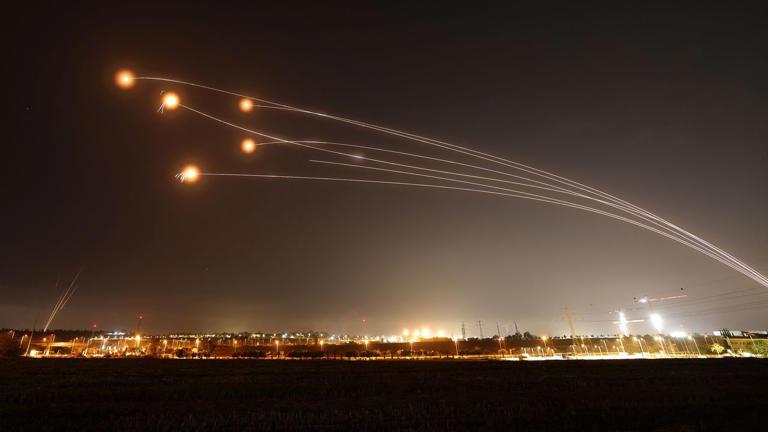
Palestinian Islamic Jihad calls the shots in Gaza from Lebanon
In last week’s escalation between Gaza and Israel, the shots were called by leaders of the Palestinian Islamic Jihad group based in Lebanon — now a strategic center of operations for multiple Palestinian armed groups.
The big picture: As the Arab world normalizes relations with Israel, the leaders of the PIJ and Gaza’s largest militant group, Hamas, have found support from Iran and its militant proxy in Lebanon, Hezbollah.
In recent years, coordination between Hezbollah and the Palestinian groups has increased, particularly since the Gaza war in 2021, Souhayb Jawar, a Lebanese researcher of Islamist political movements, told Axios.
Behind the scenes: Any action carried out by the PIJ, including the recent orders to fire over 1,000 rockets from Gaza into Israel, must pass through Esmail Qaani, the commander of the Quds Force, one of the five branches of Iran’s Islamic Revolutionary Guard Corps, or the Hezbollah operative in charge of coordination with the Quds Force, Jawar said.
The PIJ maintains close links with Iran, which supplies them with training, expertise and money.
The PIJ’s secretary-general, Ziad al-Nakhaleh, lives in Beirut, in addition to the group’s political leader, Ihsan Ataya, and the leader in charge of Lebanon’s politics, Shakib al-Ayna, according to Jawar.
“Living on the same ground, it makes sense to see this kind of cooperation,” Azmi Keshawi, a Gaza analyst from the International Crisis Group, told Axios.
What they’re saying: A day before the Egypt-brokered cease-fire, Hezbollah leader Hassan Nasrallah affirmed the party’s support for the PIJ and said, “Hezbollah is in constant contact with the leadership of the resistance in Gaza and we won’t hesitate to offer help at any time needed.”
Hamas’s representative in Lebanon, Ahmed Abdel-Hadi, announced during the conflict that there would be two responses to the “Zionist aggression on Gaza.” Hamas frequently refers to Lebanon as the “battleground” in the event of a widespread conflict with Israel, Jawar said.
Meanwhile, Lebanon’s Foreign Ministry condemned the “Israeli aggression on the Gaza strip” and called for an immediate cease-fire.
State of play: The majority of Lebanon’s lawmakers kept quiet regarding the Israeli strikes in Gaza. “The current government adopts the principle of dissociation,” Jawhar said.
Lebanon’s parliament is largely split into two camps, one opposed to and one allied with Hezbollah. The opposition camp is keen to sustain relations with the United States and is often silent on matters that might provoke division with the West, he noted.
But Hezbollah’s key Christian allies, the Free Patriotic Movement and the Marada Movement — the party of Hezbollah’s presidential pick, Suleiman Frangieh — did not comment on the Israeli operation in Gaza.
These parties are rejecting the presence and activity of Palestinian militant groups in Lebanon, Jawar said, and they’re dissatisfied with any activity that might provoke a war with their southern nemesis.
The bottom line: The unification of fronts between Hezbollah and Palestinian resistance groups is a way to project deterrence, rather than an intention of war against Israel, Keshawi said.
“If Hezbollah goes to war, he better have Hamas at his side. It’s mutually beneficial for all of them to act as one,” he added.
Source: msn





